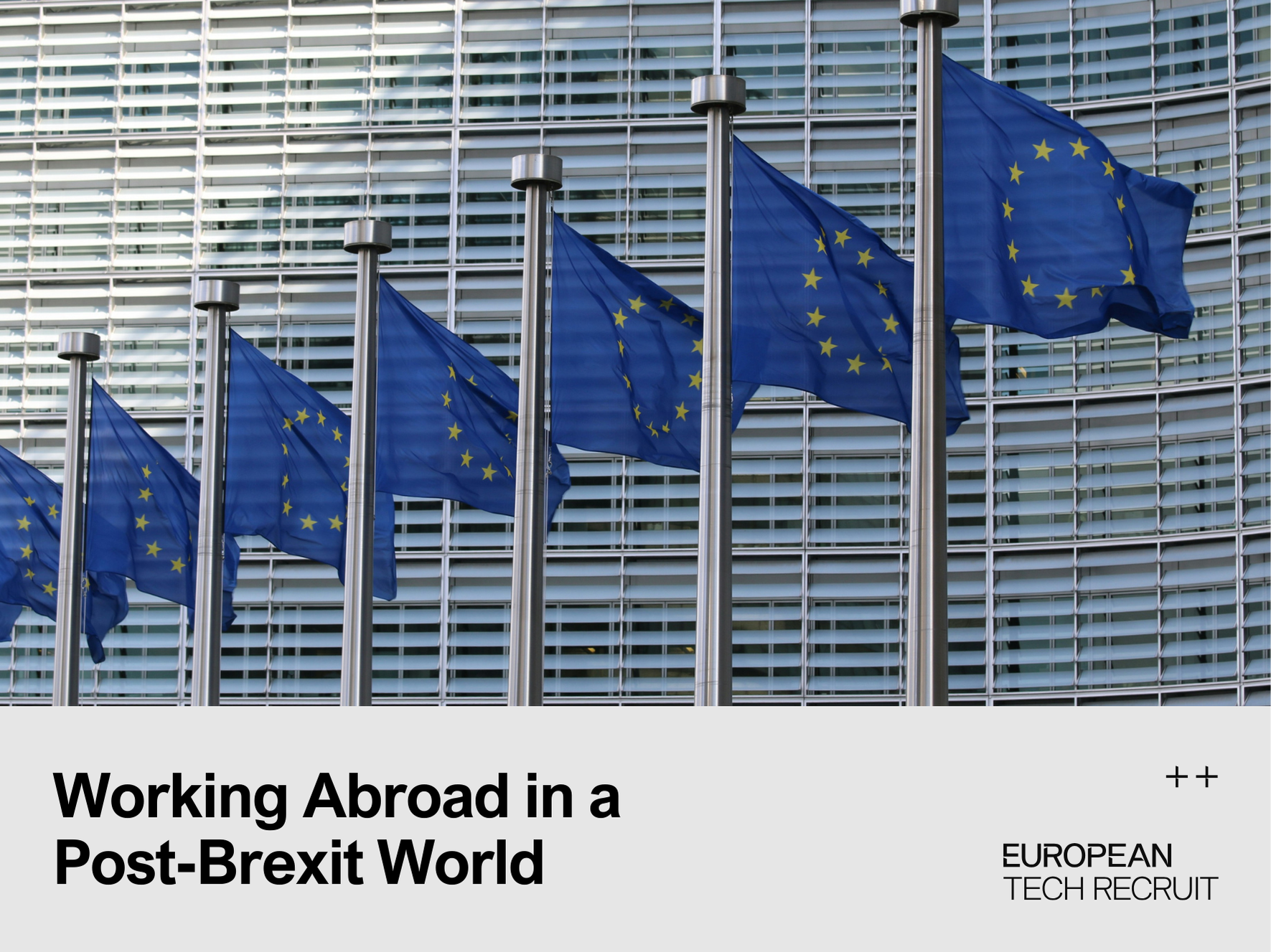Working abroad in a post-Brexit world

In this article:
Most of us anticipated that after Brexit working abroad would become more complicated. Although we weren’t mistaken, the Europe-wide exchange of job seekers will of course continue. But how many of us are ready for the changes? It’s been reported that the coronavirus pandemic has left one in five businesses less prepared for Brexit now than they were at the beginning of 2020. The best defence is to know in advance what you need to do. What follows is an overview of some of the points recruiters and candidates will need to consider.
The right to work
Prior to Brexit, EU nationals did not need a visa to have the right to live and work in the UK. As they are now covered by the Withdrawal Agreement, for anyone working here before 31 December 2020, that situation will remain the same until 30 June 2021. Those who wish to remain working in the UK after that date will need to apply under the EU Settlement Scheme (EUSS) for settled or pre-settled status.
Licensed to employ
From January 2021 UK businesses will require a licence before they can employ European Economic Area (EEA) workers, even on a temporary basis. A useful tool can be found at www.gov.uk/transition-check/questions. Non-EU nationals will require a visa and will need to be sponsored by an employer. If you’re an employer, you should apply to UK Visas & Immigration for a sponsor licence, providing the appropriate documentation along with a fee. You will also have to show that the business is genuine and has the capability to properly administrate its workforce.
Skilled Worker visa
Once you have your sponsor licence, the preferred method of employing an applicant from overseas may well be the new Skilled Worker visa. To obtain the visa the candidate will need a firm job offer (at a specified skill level) from a licensed sponsor. They’ll need to pass criminal record checks and be reasonably proficient in English, and there are some additional conditions related to pay.
Under the new system, an unlimited number of Skilled Worker visas may be granted. It’s also worth noting that the Resident Labour Market Test – requiring positions to be advertised to the national workforce – will no longer be applicable.
Tier 2 (ICT) visa
An alternative to the Skilled Worker route is the Tier 2 (ICT) visa. This enables key personnel and graduate trainees within large companies to transfer temporarily, allowing some freedom of movement between subsidiary branches. Though the Tier 2 (ICT) visa is staying in place, there are some notable changes. There is a relaxation of the ‘cooling off’ rules, as well as the option to switch from a Tier 2 (ICT) visa to a Skilled Worker visa without having to leave the UK.
What costs are involved
As a licensed sponsor, you will be required to provide your migrant workers with a Certificate of Sponsorship, which will entail a fee of £199. There will also be an Immigration Skills Charge of £1000 for every migrant, payable for each year they are sponsored. (Some discounted rates will be available for small businesses).
Payment for the visa itself will also have to be made by each employee, and the fee ranges from £610 to £1,408 depending on the applicant’s circumstances. As an employee, you will also be required to pay an annual Immigration Health Surcharge of £624. To be granted a Skilled Worker visa, you must show that you have at least £1,270 to initially support yourself on arrival in the UK. If your job is on the shortage occupation list, you may be eligible for a reduced application fee.
Global recruitment
Following Brexit working abroad has become a hot topic, both from the point of view of those entering the UK and those hoping to work outside it. That’s hardly surprising. According to government estimates, there were around 2.31 million EU nationals working in the UK in 2019, along with around 1.34 million workers from overseas. Add to that the fact that around 2 million UK citizens live and work in the EU, and the importance of global recruitment becomes clear.
Being ready for the changes
On 31 January 2020, the UK officially left the EU. From 1 January 2021 movement between the UK and Europe became subject to a raft of new regulations. There is likely to be a spike in applications during the early part of this year, and knowing as much as possible about the new rules is critical for both employers and candidates. Not only will it make the transit of workers easier, but there are also some significant penalties to be incurred for those who breach the immigration regulations. So get ahead of the field and be prepared. Having all the information you need will give you a far better chance of avoiding potentially costly delays.

